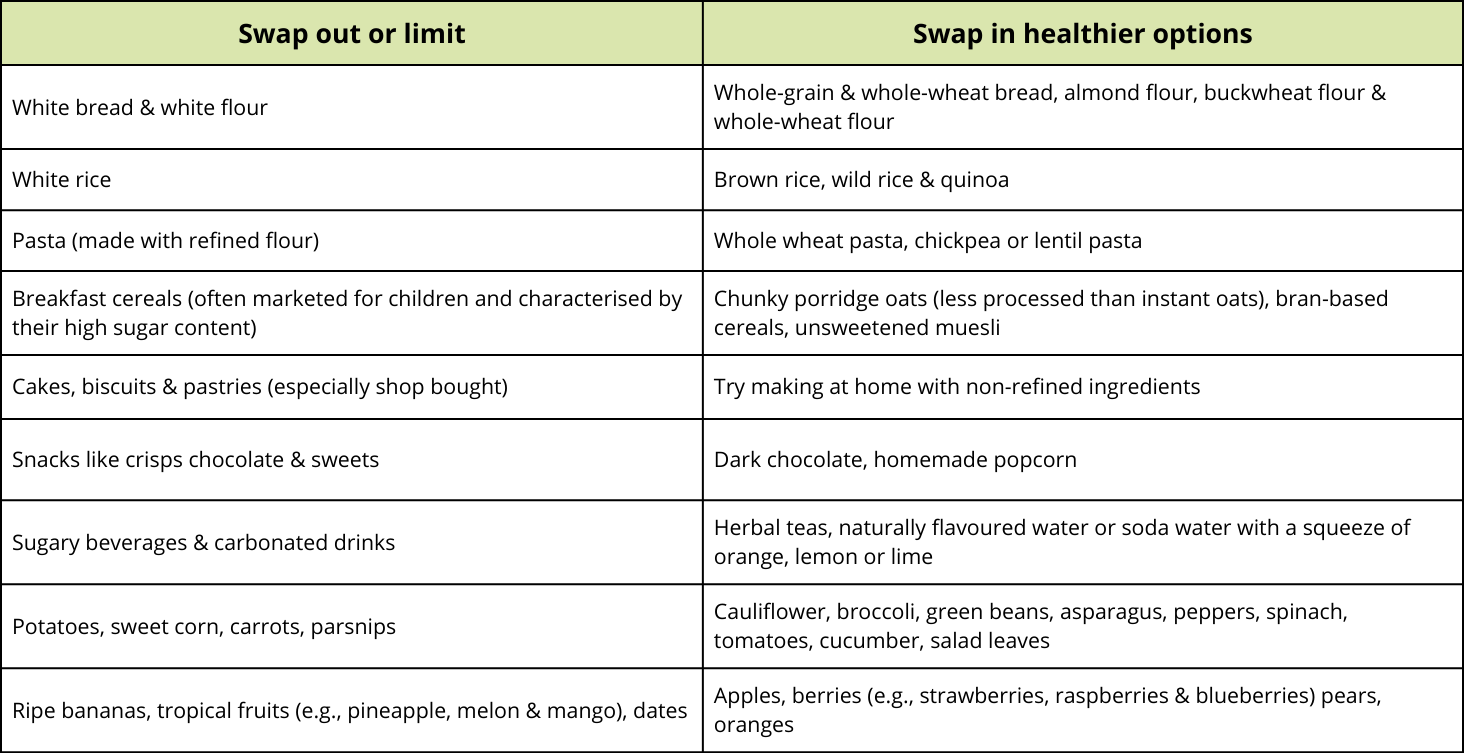Berberine and metabolic health
A 2012 meta-analysis of 14 studies found berberine to be as effective as Metformin in lowering HbA1c, fasting blood glucose, and post-meal glucose levels (4). However, the side effects reported from these studies include diarrhea, nausea, abdominal distension with constipation one of the most common complaints after berberine intake. The improved bioavailability and tolerability of Berbevis lead to clinical benefits without these common side effects.
Berbevis 550mg twice daily has been shown to significantly improve blood sugar profiles, optimising both glucose and insulin, thereby supporting conditions like type II diabetes and Polycystic Ovary Syndrome (PCOS). Berbevis modulates insulin resistance, based on a reduced HOMA index (a validated mathematical method used to directly correlate blood glucose and insulin) while also helping to rebalance lipid profiles (cholesterol and triglycerides) (5).
Berberine and weight loss
Berberine is also known as an AMPK activator (AMP-activated protein kinase). This ‘metabolic master switch’ allows the body to boost metabolism by optimising how energy is used. When activated, AMPK triggers the body to favour fat burning over fat storage, making it a promising target for weight loss. Clinical evidence has demonstrated that a single daily dose of 550mg Berbevis phytosome favourably affects body composition, promoting a healthier weight and fat-to-muscle ratio. (6) Berberine Phytosome & Chromium is ideal for those with slow metabolism seeking to boost their metabolism for weight loss.
Berberine and heart health
In addition to its effects on metabolic health and blood sugar regulation, berberine also provides benefits for heart health through its lipid-lowering benefits. In addition, AMPK activation not only affects metabolism but also relaxes blood vessels, leading to lower blood pressure. A single 550mg daily dose of Berbevis phytosome has been demonstrated to decrease total cholesterol and triglycerides (7).
Berberine and brain health
The brain consumes roughly 20% of the body’s glucose-derived energy, making stable glucose levels essential for cognitive health (8). Berberine may therefore have advantages for brain health by supporting the brain’s cellular energy metabolism. However, the brain is protected by the blood-brain barrier (BBB), a tightly regulated gateway that limits the entry of certain substances. Similar to how P-glycoprotein limits the absorption of berberine, its presence in the BBB also impedes its entry to the brain. The inclusion of Enovita grapeseed extract means that the berberine in Berbevis Berberine Phytosome is not hampered by the presence of P-glycoprotein and that, by improving brain glucose control, berberine may have benefits for cognitive health.
Chromium picolinate
Chromium (as picolinate) can help with blood sugar control (enhanced insulin activity and improved glucose metabolism), particularly in chromium-deficient individuals or those with existing insulin resistance. Diets low in whole grains, vegetables, and unprocessed foods may lack sufficient chromium, and diets that are high in refined sugar can increase chromium excretion. In addition, the absorption of chromium decreases with age and during times of stress. Because chromium helps with glucose metabolism, insufficient intake or increased loss could worsen blood sugar control. Evidence from meta-analyses supports chromium’s benefits at doses around 200mcg per day (9, 10).







